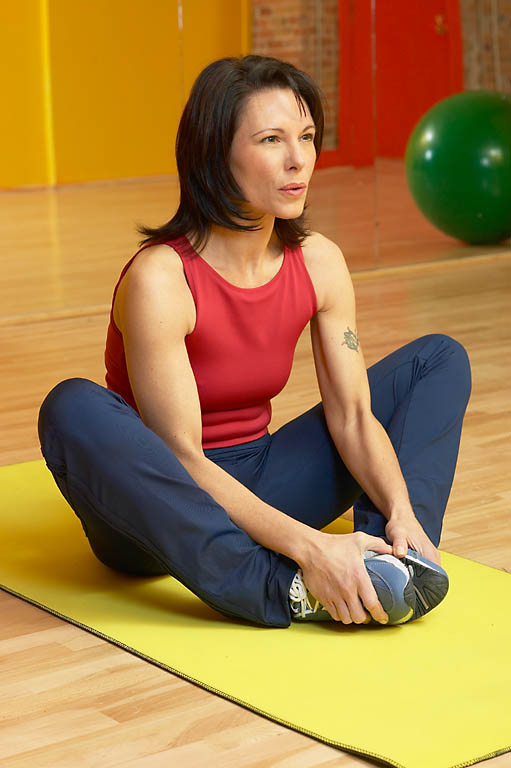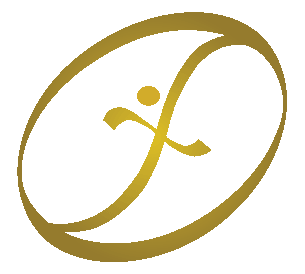Physiotherapy
Tel: 416-279-0460
Email: feelingbetter@physiofx.com
55 Town Centre Ct. Suite 640
Scarborough, ON
M1P 4X4
A better way to feeling better!
What is Physiotherapy?
Physiotherapy is physical therapy. Physiotherapy is a regulated health profession dedicated to improving the quality of its clients’ health with conservative physical treatment methods. Physiotherapy is a science based profession. Your Physiotherapist has specific training and education which provides her with the skills to evaluate your condition and then design and implement physical treatments with the goal of improving your condition.
What kind of treatment is involved?
Physiotherapy treatment can be broken down into three different
categories and your treatments will likely have components from
any or all of the categories of care.
Passive treatments: These are treatments which are applied to
you to effect a physical change. Treatments can include modalities (laser,
ultrasound, electromagnetic current, heat, ice etc.) and/or manual techniques (joint mobilization/manipulation, soft tissue mobilization, muscle stretching/strengthening etc.)
Active treatments: These are treatments which require the patient’s participation. They are specifically designed exercises targeted at effecting a change within the musculoskeletal, neurological and/or cardiorespiratory systems as they relate to your condition.
Homework: This is the most important part of your treatment. Homework, just like in school, requires full patient participation outside of the clinic setting (and your Physiotherapist will quiz you!). You can expect to have some work to do between visits which will help progress your care. After all, you are with yourself 24/7! But don’t worry! Your Physiotherapist at Physio F/X will teach you everything you need to know as well as demonstrate proper form and technique.
What is the EDUCATION process for Physiotherapists in Ontario?
Physiotherapists are educated through accredited programs at the University level. Presently, Physiotherapists must graduate from a 4 year Bachelor Degree program before completing a 2 year Masters of Physiotherapy degree. A Registered Physiotherapist will have any of the following credentials: BScPT, MScPT or simply PT.
After graduating the candidate must pass a credentialing examination process called the Physiotherapy National Exam. This process involves written and practical examinations in addition to a board review of academic credentials. Once the candidate has successfully completed the accreditation process they receive a certificate from The Canadian Alliance of Physiotherapy Regulators.
Continued registration with the College of Physiotherapists of Ontario (the regulatory body for Physiotherapy in Ontario) requires that each licensed Physiotherapist participate in continuing education to maintain the quality and standards of practice of their profession. Many specialty courses are available to Physiotherapists to take in their area of expertise which are made available through the professional association, the Canadian Physiotherapy Association and/or special interest groups in their field.
FAQ
1. WHEN DO I NEED TO SEE A PHYSIOTHERAPIST?
The answer is simple.
a) If you have pain somewhere that you have questions about. You may or may not have seen your family doctor regarding an ache or pain that is affecting your ability to function at your best. A Physiotherapist has specific skills to evaluate, advise, and /or treat many types of conditions.
b) If you need advice about fitness or exercise. Whether you are just starting an exercise program, beginning to change to a more active lifestyle or you are a seasoned exercise enthusiast, your Physiotherapist can answer any of your questions.
2. HOW CAN I PREVENT INJURIES WHEN I EXERCISE?
The best way to prevent injuries is to show up early and be prepared. A good piece of life advice too. If you arrive to exercise early, you have enough time to “warm up” your body and stretch before you place the heavier demands of the activity on your muscles and joints. These rules apply to vigorous sports/exercises and recreational activities such as gardening, walking and shoveling, painting and renovating around the house, and “housework”.
3. WHAT IS AN RSI?
RSI is an acronym for Repetitive Strain Injury. It is a loose categorization of injuries which are believed to originate from repetitious movements; repetitious movements can occur during sports, recreational activities (gardening), activities of daily living (driving), occupational demands (prolonged sitting or heavy repetitive tasks).
Repeating the same movement patterns over and over can cause imbalances in the muscles and fascia because your body is living tissue and it will adapt to "whatever you ask it to do" most often
4. WHAT IS THE BIG DEAL ABOUT POSTURE?
Posture is the alignment of your body and describes the balance and/or imbalance that exists in the muscles, ligaments, connective tissues, and skeletal structures. Postural positioning will affect the amount of strength, tension, and efficiency of the musculoskeletal system. Postural syndromes
can cause ineffective and/or inefficient use of muscle groups, and eventually skeletal structures, in the body which can lead to injury and discomfort.
5. BUT ISN’T MY POSTURE INHERITED?
NO!!! Although there are certain genetic conditions which can negatively
affect your posture, for the most part, your posture is “learned”. You will adapt certain elements of your posture from the sustained positions you develop at work/school (which is work too); part of your postural character will be influenced by your hobbies/ activities; the people who surround you will also have a strong impact on the postures you choose. Therefore, in the majority of us, our posture is often a physical accumulation of characteristics and physical stresses and strains that we have chosen as a part of our lifestyle.
6. WHAT IS S.M.A.R.T?
You are, because you have chosen to do something proactive for your health!
S.M.A.R.T. is an acronym we are using in the Rehabilitration circles to help promote active lifestyle changes. It stands for Stretch, Move, Add it up, Reduce strain, Talk to a Professional. These are the key ingredients to making the changes to a more active and healthy lifestyle.
An active and healthy lifestyle is accompanied by mobility. When you move well you feel well and all of our team at Physio FX is dedicated to the restoration and/or enhancement of mobility and functionality..
7. WHAT IS YOUR CLINIC LIKE?
Our clinic is a large, (2500 sq.ft) friendly, multidisciplinary space with a full gym area filled with specifically designed rehabilitation exercise equipment, 1 private Physiotherapy treatment room, 3 private Massage therapy rooms, and 1 Naturopathic office. The gym space is filled with natural light, as we have wall-to-wall windows overlooking the busy Scarborough Town Centre hub. Our clinic is fully equipped with all the necessary treatment modalities such as Therapeutic Laser, Therapeutic Ultrasound, Interferrential current machines, TENS (Transcutaneous Electrical Nerve Stimulation) unit and Muscle stimulator unit along with Theraband equipment, stability balls, free weights, and cardio equipment. Take a peek by clicking here !
BENEFITS
There are a thousand-and-one benefits to Physiotherapy!
If you suffer from a specific injury or localized pain, Physiotherapy can offer pain relief, solutions to the underlying problem, and in most cases complete rehabilitation. The knowledge your Physiotherapist possesses will allow her to develop a treatment plan specifically designed for you. They may work with a hands-on approach to mobilize joints, to ease muscle tension, to improve range of movement, etc. They may use a modality, like Laser, Ultrasound, or Interferrential current, to stimulate the injured tissues and promote healing within these areas. They may show you some new stretches and exercises that you can do in our gym and/or at home to promote strengthening and improve posture. Most likely though you will have a combination of all of the tools Physiotherapy has to offer incorporated into your treatment plan. Physiotherapy will get you back into that sport, back to work, or back to the gym. In short, back to your normal life!
Physiotherapy doesn't have to be just for injuries. Physiotherapists can provide tips, advice, stretches, work out plans, etc for any number of different activities and individuals at all stages of life. Come talk to our Physiotherapist if you aren't suffering from an injury but would like to:
- develop a proper weight training program
- rejuvenate an old workout plan
- start a new cardio routine
- start a new sport
- train for an event (marathon, mountain climb)
- relieve pre-natal or post-natal bodily stress
- develop better posture
What Conditions can Physiotherapy help?
Physiotherapy can be used to treat NUMEROUS conditions.
Problems within the musculoskeletal system (muscle sprains, tears, spasms), neurological based issues (pinched nerves and numbness in limbs), sports injuries (ruptured ligaments and tendons, sprained ankles, broken bones), repetitive strain injuries (carpal tunnel, tendonitis), Motor Vehicle Accident injuries, post surgery rehabilitation, low back pain, neck pain, slip and fall rehabilitation, orthopedic issues, pre and post natal issues, and loads more.
It is important to keep in mind that while the pain from many injuries may subside within a few days, one should still see a Physiotherapist to ensure that scar tissue depositing is minimized, flexibility and strength are not lost, and that full range of movement is maintained. The best way to prevent future complications from past injuries is to be proactive and have your Physiotherapist help you from the very start!
Name:
Email:
Service required:
Tel. #:
Preferred Date/Time:
Yes! I would like to make an appointment!
Tel: 416-279-0460
Email: feelingbetter@physiofx.com
55 Town Centre Ct. Suite 640
Scarborough, ON
M1P 4X4
Physio FX





